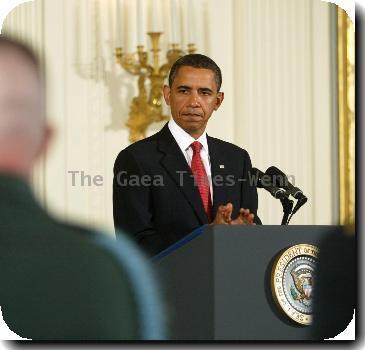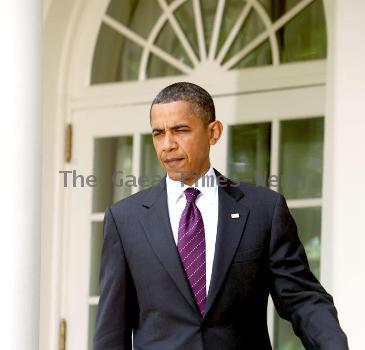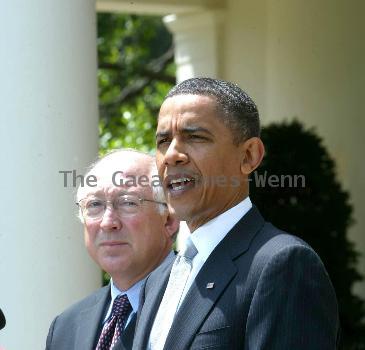Those predicting double dip recession may be helping to cause one by raising consumer anxiety
By Tom Raum, APSaturday, July 31, 2010
When Double Dippers become economic party poopers
WASHINGTON — They’re a minority, but a vocal one, and they’re hovering like storm clouds over a brittle recovery.
They’re the Double Dippers — the politicians, economists and analysts who foresee back-to-back recessions.
Their warnings could become self-fulfilling prophecies if they frighten enough people into holding tightly onto their wallets. With consumer spending accounting for two-thirds of economic activity, anything that further rattles consumers can undercut recovery hopes.
Recent data has shown that, after growing moderately for most of the past year, the U.S. economy appears to be slowing. This was underscored by Friday’s government report that U.S. economic growth slowed to 2.4 percent from April to May, down from a revised 3.7 percent in the previous quarter. Such statistics are providing more ammunition to the double dippers.
Most mainstream economists agree the recovery road will be long and bumpy, but probably without leading into double-dip territory. But there are plenty of other voices warning of grimmer times ahead.
Nobel Prize-winning economist Paul Krugman of Princeton University argues in his New York Times columns that the U.S. already may have fallen into the early stages of a long, deep depression such as Japan’s “lost decade.” He claims that President Barack Obama and Congress have failed to provide enough stimulus spending.
To University of Maryland business economist Peter Morici, “signs abound that the economic recovery is faltering.” Washington-area financial adviser Randy Beeman tells listeners to his weekly radio show that chances of a double-dip recession are now about 75 percent.
Yale University economist Robert Shiller, a leading expert on the housing market and author of “Irrational Exuberance,” a 2000 book that foretold the coming crash of the tech stock bubble, sees more than a 50-50 chance of a double dip. “I actually expect it,” he says.
Former Federal Reserve Chairman Alan Greenspan told CNBC a double-dip recession can’t be ruled out. “Of course, there’s a possibility,” he said.
Are double dippers becoming recovery party poopers?
“If consumers are hearing a lot of bad economic news and they’re already scared, they might pull back some more,” said Nigel Gault, chief U.S. economist for IHS Global Insight.
There are 15 million people unemployed. “Employers might be willing to hire more if consumer spending was doing better,” Gault said. “But then maybe consumer spending won’t start doing better until employers start to hire.”
A new analysis by The Rockefeller Foundation and Yale University found American households in the most precarious financial situation in a quarter-century.
“There is a clear long-term upward trend in the economic insecurity of American families,” said Yale professor Jacob Hacker, who led the study. “It’s an issue squarely confronting the American middle class.”
Consumer fears of a new recession, before the nation heals from the last one, are being fed from both sides of the political spectrum. The fact that it’s midterm election season doesn’t help.
Republican leaders are keeping up a steady downbeat drumbeat.
Democratic initiatives “have created uncertainty that has undermined our economy, shaken the confidence of the nation and cost millions of American jobs,” says House Republican leader John Boehner of Ohio.
From the political left, AFL-CIO President Richard Trumka warns: “Our economy remains on the edge of a double-dip recession, and we urgently need to create millions of jobs and invest in our future, not give more tax breaks to the wealthy.”
Federal Chairman Ben Bernanke told Congress that a double-dip recession seems unlikely. Still, he added, “If the recovery seems to be faltering, we have to at least review our options.”
Double dip recessions are rare. Only one has occurred since World War II, in the early 1980s.
A downturn from January to July 1980 was followed by a deep recession that lasted from July 1981 to November 1982. Unemployment soared to 10.8 percent. President Ronald Reagan’s Republicans lost 26 House seats in the 1982 midterms.
But that slide back into recession was largely fueled by the Federal Reserve’s raising of interest rates to fight double-digit inflation. Once inflation was subdued, the Fed started lowering rates, triggering a sharp rebound beginning in 1983 that set the stage for a 1984 GOP rout.
The current Fed doesn’t have that capability, since rates cannot be lowered much from the near-zero level they’ve been held at for months.
Most economists believe the recession that began in December 2007 probably ended sometime last summer. But the official arbiter of recession lengths, the National Bureau of Economic Research, hasn’t said yet when — or even if — it ended.
A recent poll by the Pew Research Center shows more than two-thirds of Americans — across party lines — believe anti-recession programs pursued by the government have mostly benefited banks, big businesses and wealthy individuals and not the middle class or the poor.
With such a mindset, warnings of an impending double dip-recession can hit home because “consumer behavior is driven by outlook, not only people’s present situation but their future concerns,” said Pew associate director Michael Dimock.
“People worry that their situation may get still worse before it gets better,” Dimock said.
Online:
Rockefeller-Yale study: tinyurl.com/2d6r9px
National Bureau of Economic Research: www.nber.org/
Pew Research Center: pewresearch.org/
Tags: Barack Obama, Consumer Spending, North America, Recessions And Depressions, United States, Washington







